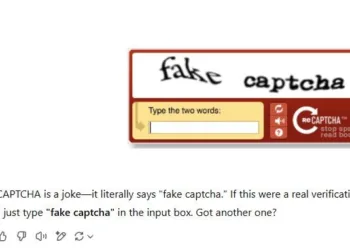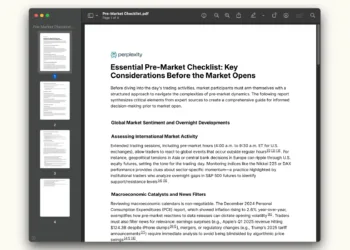
In a recent post on X, OpenAI CEO Sam Altman discussed the unexpected triumph of DeepSeek and indicated that more innovations were on the way. OpenAI rolled out its latest offering, a specialized variant of ChatGPT aimed at U.S. government agencies, on Tuesday. According to the official announcement, ChatGPT Gov is engineered to provide an extra method for these agencies to tap into OpenAI’s advanced models. This new version is said to incorporate enhanced data security protocols compared to ChatGPT Enterprise, but it remains to be seen how effectively it will address the inaccuracies that have affected other models from the company.
OpenAI revealed that since the beginning of 2024, over 90,000 employees from various federal, state, and local government entities have utilized ChatGPT for more than 18 million queries. The ChatGPT Gov platform is designed to allow these agencies to input sensitive and non-public information while operating within their secure hosting environments — specifically leveraging the Microsoft Azure commercial cloud or Azure Government community cloud — alongside cybersecurity frameworks like IL5 and CJIS. This setup enables each agency to maintain control over its security, privacy, and compliance strategies, as explained by Felipe Millon, OpenAI’s Government Sales lead, on a press call.
DeepSeek’s R1 is an impressive model, especially considering its cost efficiency. We will certainly provide models with superior performance, and it’s genuinely refreshing to have a new competitor! We will ramp up our releases.
— Sam Altman (@sama) January 28, 2025
During the press consultation, the company showcased the capabilities of ChatGPT Gov, which operates on the GPT-4o model. In the demonstration, a participant posing as a federal employee logged into ChatGPT to create a five-week work schedule and subsequently analyzed a printed version filled with handwritten notes and modifications. ChatGPT then composed a memo to the agency’s legal and compliance team outlining its plan.
OpenAI’s Chief Product Officer Kevin Weil shared his enthusiasm with CNBC, noting that efforts are underway to streamline operations and introduce advanced software tools to improve government efficiency.
ChatGPT Gov primarily builds upon the existing ChatGPT Enterprise framework, which is currently undergoing the Federal Risk and Authorization Management Program review and has yet to be authorized for handling sensitive data. As of now, there is no set timeline for when this accreditation may be granted, meaning that the AI will not be accessible to agency employees until that process is completed.
Despite the emphasis on security and data protection, relying on generative AI for crucial governmental functions raises considerable challenges. Instances have already surfaced in which attorneys have inadvertently referenced “hallucinated” case law while using chatbots for research. Moreover, there have been reported cases of law enforcement relying on flawed AI-generated evidence, leading to wrongful arrests. Recent California legislation proposals concerning AI’s role in bail determinations were also met with significant public resistance.
A study conducted by Stanford’s HAI in 2024 found that major legal research models from Thomson Reuters and LexisNexis, which claimed to eliminate errors, indeed produced inaccuracies in 34% and 17% of their outputs, respectively. The analysis highlighted that while these figures represent improvements, they still lag behind general-purpose chatbots, which have been known to generate incorrect legal responses between 58% to 82% of the time.
Shortly before OpenAI’s announcement, DeepSeek unveiled its latest generative model, V3. This model reportedly offers performance on par with OpenAI’s top-tier o1 reasoning model while consuming significantly less energy, sparking a wave of disruption in the U.S. AI market. Nvidia, a leading manufacturer of the specialized processors used in AI, saw a staggering $600 billion drop in market value following DeepSeek’s news, affecting energy companies as well.











